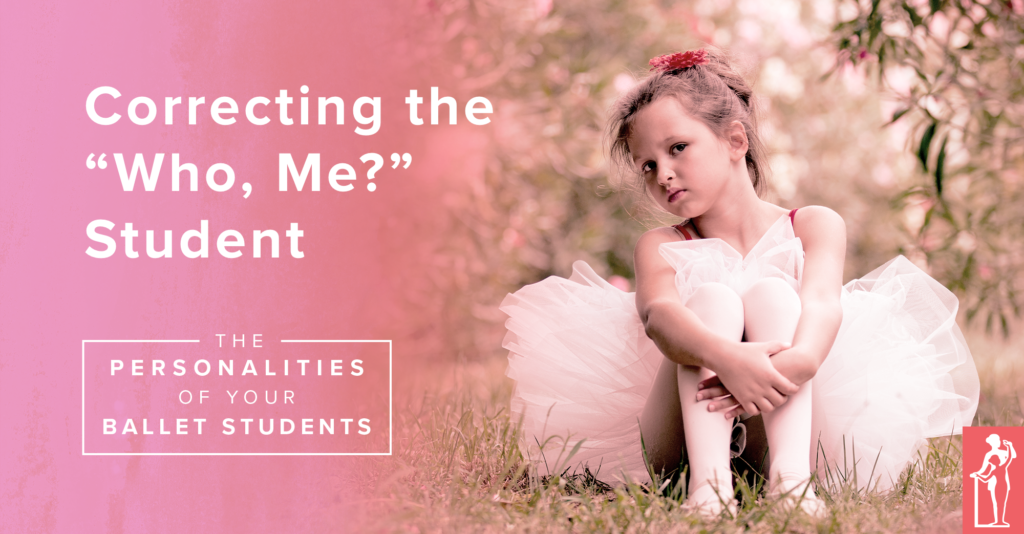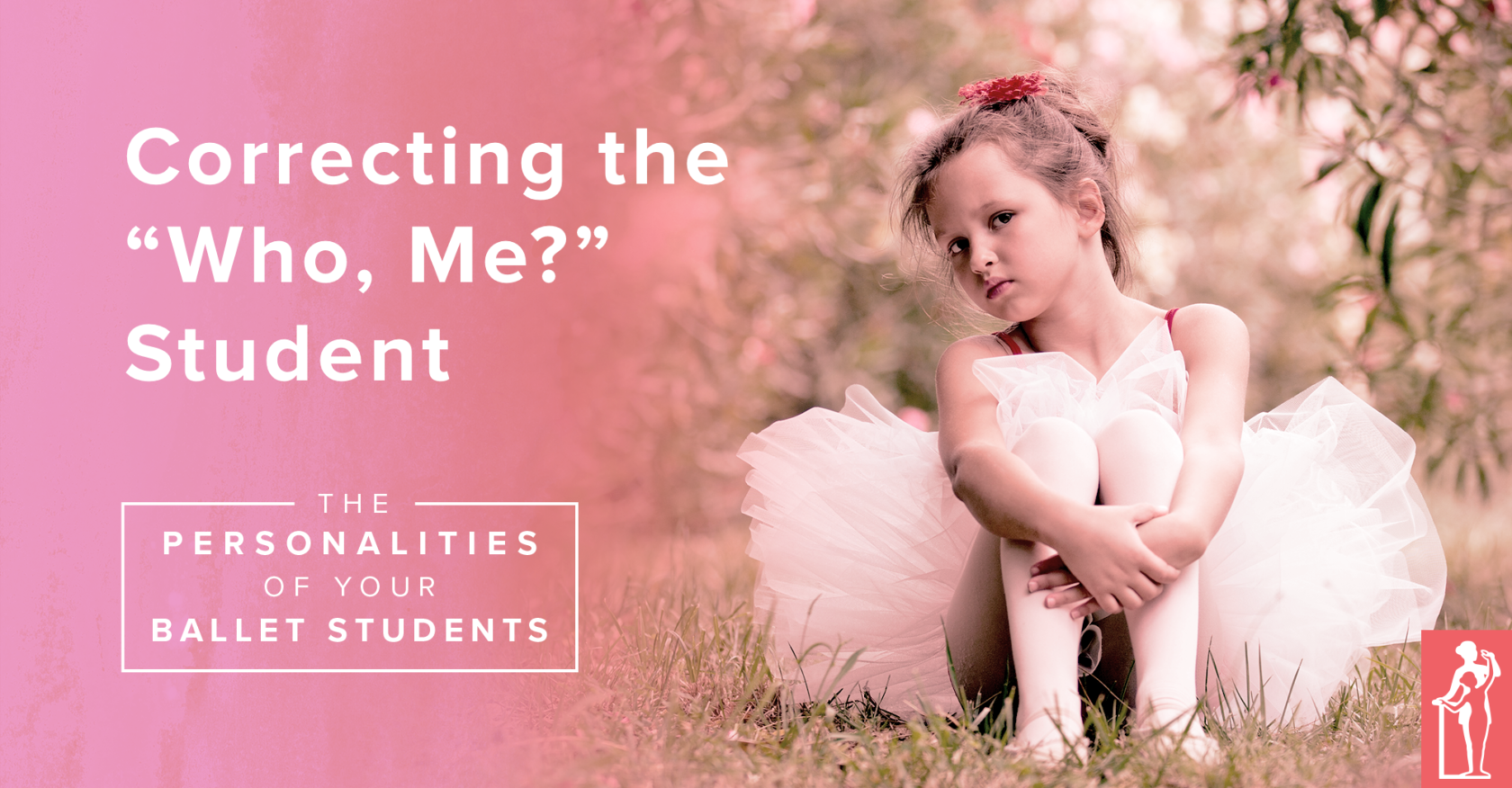
Deer in the headlights, anyone?
It seems she cannot comprehend why you would ever correct her in the first place. “What could I have possibly done wrong?” These “Who, Me?” students are the children who may not receive a lot of correction in their daily lives. I’m going to step up on my soap box for a second here and say that for correction to be taboo in a dance classroom is utterly detrimental to the progress of the students. It is so important to guide them through the disciplined processes of the class and, even when they don’t see it, point out when they’ve gone past the line. They may not take it well at first, but don’t be afraid to show them what it means to listen to and follow instructions.
“Who, Me?”
I have one student in particular who responds this way almost every time I correct her. She will make a face that says, “How could you?” which makes the other students giggle and then whatever correction I’m giving she doesn’t hear. Dodging the correction will not help her, so I sometimes have to be very firm with her, make eye contact and speak seriously. Not every correction has to be this way with the other students, but the “Who, me?” student needs your firmness to get the message through effectively.
Negatives
The “Who, Me?” student will rarely, if ever, take responsibility for her own actions. Even when her offense is in plain view of the teacher and the rest of the class, it will still not be her fault. This can be a very difficult situation to handle since there becomes no offense too great for this student. You can correct her, tell her what to do instead, and still not see any change even after several corrections. It’s as if the correction has slipped right off her back. On a bigger scale, the other students in the class will be observing all that is happening between you and this student and may gather that they, too, can get away with doing it. Who, Me? will then find ways to slowly lead others to follow in chaos-causing behavior, and they will! I had a student this past year who was a Know-It-All as well as a Who, Me?, so it was especially difficult to reign her in. She liked to answer questions and do things right, but she was also the one to cause the others to do the wrong things, shout out answers and generally delight in bring chaos to my classroom. It was a very difficult situation because I saw her natural ability to lead as a good thing, but I couldn’t trust her to choose to do the right thing.Positives
You will not experience the same process of correction with the Who, Me?student. The corrections that you give her will not seep in outwardly right away. She will understand what you’re saying, but she won’t be consistent with it because, again, she doesn’t want to show you that she knows she got it wrong. She wants to be innocent, so she will sometimes take a while to let the correction take effect. The good news is, she does take corrections! There are other personalities that do not let the corrections seep in at all. Her inability to admit she was in the wrong is something you may have to work on with her, but at least you know that you are getting through to her. Often the reaction that she gives to correction is a sign that she does not get regular correction or accountability from any other adults in her life. You have an excellent opportunity to teach her a very important life lesson: you are “the captain of your own ship”, and you are responsible for the choices you make.How Do I Teach Who, Me?
One thing I have learned from experience: always finish up a correction on a light note. There are students who will sometimes walk away with the idea that you “hate” them or that you don’t want them to come back next year. Yes, it happens. So, without taking any of the pressure off, say something like, “because I believe you can do [such and such] really well,” or “You can do that, can’t you?” Even something as simple as a smile of encouragement at the end of your correction works wonders!
On the reverse, be sure to praise her often when she does something right. There could be an underlying need for attention from adults that she does not receive from the other adults in her life. This has shown up in her life as a tendency to act out, but perhaps with you being her rock of consistency as well as her source of praise and encouragement, she may change over time.
Let her lead! This particular personality type actually does have an incredible potential to lead, as soon as she has learned how to lead herself. Foster this capability by giving her opportunities to lead, as you see fit. It may take a few tries, but it will help her learn responsibility.
Be consistent. Again, if she does not get behavior correction often, she is not used to the rules remaining firm nor the consistency of consequences. Do not give her special treatment, but instead hold her accountable every single time she repeats an offense. She deserves to be corrected and guided. Left on her own, how will she ever learn to listen, respect and follow directions if you don’t patiently guide them?
Read about the other personalities . . .
DISCLAIMER: Not all students can be categorized in this way. It is not my intention to box anyone in to a certain personality type, and not all the advice I give in this article will work on every student. Each one is made up of a different blend of personalities and will respond differently the advice given here.


Comments
No comments for this post.
Add Comment